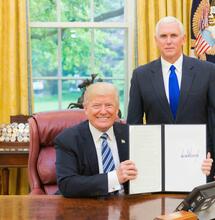Great news!

Rejoice! The EU has decided to allow member states to legally regulate currently illegal drugs! Right now dumbstruck readers are probably thinking "What? Am I reading this correctly? Is this a joke?"
Rejoice! The EU has decided to allow member states to legally regulate currently illegal drugs! Right now dumbstruck readers are probably thinking "What? Am I reading this correctly? Is this a joke?"
Rejoice! The EU has decided to allow member states to legally regulate currently illegal drugs! Right now dumbstruck readers are probably thinking "What? Am I reading this correctly? Is this a joke?"
Yes, you are reading it correctly, and it's absolutely no joke; far from it, in fact. Although, on reflection, perhaps it is: probably best you read this and then make your own mind up. If it is a hoax, it's a pretty good one, and that might explain why there's been zero coverage of it in the UK media. Either that or...ah, let's just get on with it.
It's quite astonishing how really highly newsworthy stories can be buried beneath other material. You know the kind of thing I'm talking about: married footballers playing away from home, piano playing dogs and so forth. This EU drugs story is real news, and it is entirely because I take a personal and professional interest in such things that I know about it.
For those who don't know, here are the basics of the story. At the end of last year (yes, the story is that old) the EU published a statement wherein it was stated that they (the EU):
"...will not block any initiative of EU Member States to start the legal regulation of cannabis and other currently illegal drugs"
Now, I'm no lawyer, but it seems that this, in essence, translates to the EU won't impose any sanctions, send the army in, or whatever, on any member state that decides to take a good, long look at their current policies on drugs and drug prohibition with a view to changing them, and as cannabis has been named specifically, it would appear that this is the one that's getting the major nod on the part of the bureaucrats. Exciting stuff, no? Well, maybe, but...
This rather sudden volte face seems to stem from the publication in 2009 of findings of research commissioned by the EU, "Report on Global Illicit Drug Markets 1998 - 2007", by Peter Reuter and Franz Trautmann. Readers will find a link to this report at the foot of this article.
Two proposals or recommendations were considered by the European Commissions Anti-Drugs Unit, at a Public Hearing on Drug Policies. The first of these was the implications of the decriminalisation of drugs per se (or at least, the financial implications).
Secondly, they considered the "financial implications of...the regulation of cannabis for public expenditure".
The first of these, apart from being an utter minefield and full of potential grey areas due to the use of the term "decriminalisation" (see any number of this authors columns in SS passim if you want to know why), is way beyond the remit of Soft Secrets, and is therefore best passed over. However the second of these, focussing as it does specifically on cannabis, warrants closer scrutiny.
What immediately grabs the attention is the use of the term "regulation". This usually implies an element of legality so there's an implication here that rather than go for decriminalisation, it may actually be a process of legalisation, which is a whole other ball game. The principal difference between the two is that legalisation would allow the production and cultivation and then the commercial dealing of cannabis to become a recognised and bona fide trade. Cannabis would become a legitimate commodity and so would presumably be subject to "market forces" and all the other economic laws that affect other commodities such as coffee and tea.
So what's the problem, exactly?
I really don't want to be a Prophet of Doom about this - honestly: please think of me more as the Devil's Advocate - but my immediate feeling is that what's being proposed is the right thing, but for the wrong reason. One might, with some justification, say "Well, so what? At least it's the right thing", tantamount, it seems to "The end justifies the means". And that's all fine and good, but I continue to have serious misgivings about what I see as the fundamental justification for the move, which is to say "Money".
For decades now, the whole issue of cannabis legalisation has been (supposedly) highly problematic due to a range of mainly health-related issues. Does cannabis use in pre-teen or early teenage years trigger psychotic illness? Does early cannabis use trigger a desire to move on to "harder" and more problematic drugs? Is cannabis smoke itself actually as harmless as proponents make out? On the subject of smoke, what about the whole issue of the close link between cannabis and tobacco smoking? These are just a few examples of reasons given for not legalising cannabis, and there are many more.
What I want to know is "what's changed"? After all, it's not as though these reasons for not legalising or even decriminalising cannabis have just disappeared or been "solved". It's definitely not as though the drug experts on the prohibitionist side of the fence have had a mass epiphany and collectively declared "You know something? We were wrong about cannabis all the time. The fact is there's no health risk connected to it at all and it should be legalised". While I agree 100% that cannabis needs to be legalised, there are a number of question marks over some of its effects and so I'd want legalisation with a number of caveats.
The plot thickens
One estimate available maintains that the commercial retail value of the EU illicit cannabis market is in the region of €9.6 billion, and that worldwide, the retail value of the cannabis market is estimated to be worth somewhere in the region of €70 billion (in 2005, the most recent figure I can find), but of course these figures are really little more than working estimates: in actuality the amounts could be substantially higher. In fact, in the EU press release, it's mentioned that the estimated total amount of revenue generated by "a combination of measures" could be between €35 billion and €60 billion to the EU alone, an amount that's not small potatoes by anyone's reckoning; perhaps even enough to make it worth turning a blind eye to the potential health issues.
I'm sure it's quite coincidental, but these moves towards decriminalisation and / or legalisation have been largely driven by activists from Greece, Spain and Portugal: all three of these being countries hit very hard in the recent bout of Capitalist roulette, otherwise known as the worldwide recession.
Actual estimates as to the value of the cannabis market in these three countries have proved to be elusive (and believe me, I've looked high and low for figures), however we can say that in the UK - also rather badly affected by the global economic situation, if not quite on the scale of Greece, Spain and Portugal - the estimated value of the cannabis market alone is calculated at between €1.515 billion and €3.152 billion. And of course, because of the current legal status of weed, production is in the hands of those operating outside of the law and this in turn means that none of this amount is subject to tax. This is a situation that applies (as far as I'm aware) to all countries in the EU with the exception of Holland, and I'm none too sure how the system works there exactly (another of the problems with decriminalisation).
It may appear somewhat cynical on our part, but we do wonder whether three of the most financially afflicted countries are proposing relaxing or even scrapping the drug laws in order to generate a badly needed source of big money.
I mentioned above the right thing for the wrong reason, and while I absolutely concur that legalisation of cannabis on a pan-European level would be the right thing - a radical and welcome move - it needs to be done properly. However, there's the utterly wrong reason, and that's the thought of handing the "dealing" or "trading" and production rights wholesale over to Babylon in the form of the highest bidder. Letting the big money private sector corporate and multinational boys get their snouts in this trough would be a grave error of judgement, in my view (look at the utter mess they've managed to cause with alcohol). Legalisation of cannabis is just too important to be handed over to private enterprise lock, stock and barrel. These set ups have shareholders and are therefore driven totally by profit, and this would keep prices artificially high and therefore would guarantee we'd still be bedevilled by gangsters selling their shoddy wares.
By natural inclination, I tend towards Anarchism in my political views, but I'm also a realist and a pragmatist, and I find myself looking for the least bad option, if you take my meaning (or put more plainly, the best of a bad bunch). It pains me to say this, but I think that the government needs to intervene, certainly in terms of the distribution of weed via state owned outlets and setting the prices of the various types and strains. This is most definitely an occasion where it shouldn't be left to "the market to decide".
And there's another problem (and this one isn't rhetorical)
Nobody appears to have thought about what the UN may have to say about all this. More specifically, what the United States might have to say. Events over the past decade have demonstrated how our friends over the water have this habit of imposing sanctions and worse on anyone with the temerity to piss them off, so how do we know it's not going to happen with this? Let's be quite frank here: for all the medical marijuana shenanigans going on in the States, these laws are passed, un-passed, amended, altered and generally messed about with on such a regular basis that really, nobody of my acquaintance really has the first idea as to what's going on.
And then of course, there's the experience of Mexico, where there have been (according to BBC Online) an estimated 35,000 deaths (actually, "murders" is a more realistic way of putting this) in the past five or six years directly attributable to the Drug War, of which America is the main sponsor. The Mexican government suggested that a possible way forward would be to at least look into the possibility of decriminalisation and or possibly even legalisation of drugs, purely as a practical means of putting the organised drug cartels out of business and all hell broke loose in Washington.
Perhaps the entire point of the exercise is to test the waters and gauge public opinion (difficult, considering the zero coverage the matter has received in the press in the UK at least). Or perhaps there's an element of the EU flexing its economic muscle at play (perhaps we are actually big enough to go it alone - economically speaking - without America).
But in the end, it's all conjecture
The EU are not, of course, saying that countries should legalise cannabis, just that if they want to consider it for economic reasons then there won't be any opposition (despite various international treaties and so forth). I think that for this they most definitely need to be applauded, wrong reasons or not, but in the end it really is all conjecture. Here in the UK, we've got our noses so far up the Americans that I doubt anything would be done regarding drugs without their okay. Even if it did get the green light from Washington it would still be handed over to multinational conglomerates and/or pharmaceutical companies to kick the arse out of it. State ownership or responsibility for distribution would just not happen, as the attitude towards drugs on the part of the ruling elites in the UK is almost identical to the attitude towards legalising the sex industry, which is to say that the money generated would be somehow tainted, dirty...immoral. Not at all like the arms industry, then.
Making money from (legal) drugs and sex is all fine and good for Johnny Foreigner, but it's just not British. It's an attitude that is perverse in the extreme.
Reuter P and Trautmann F (eds); Report on Global Illicit Drug Markets 1998 - 2007,
http://ec.europa.eu/justice/doc_centre/drugs/studies/doc/report_short_10_03_09_en.pdf



